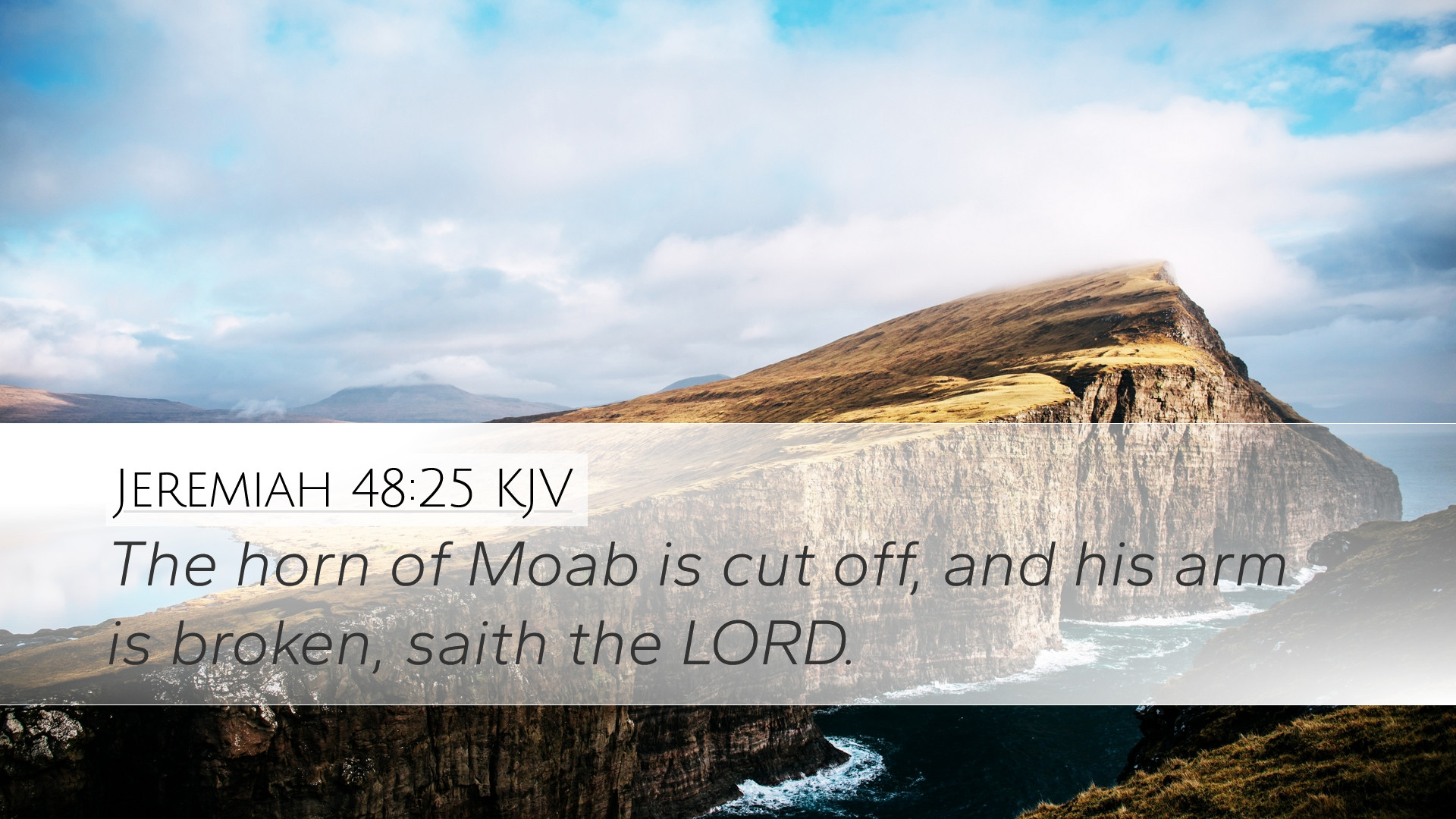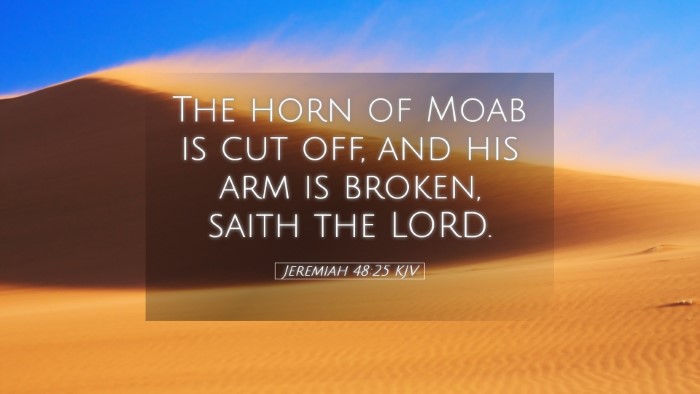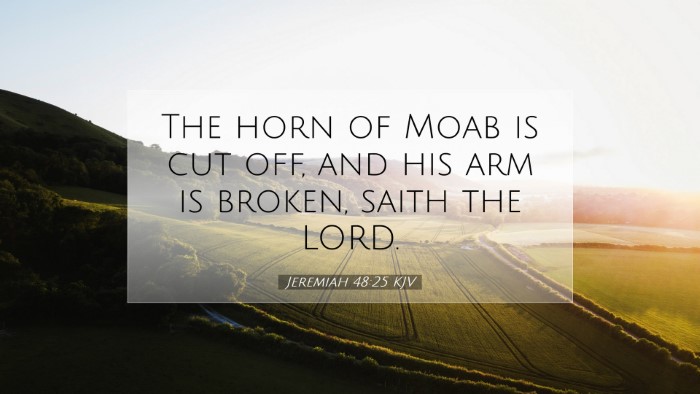Commentary on Jeremiah 48:25
Jeremiah 48:25 encapsulates a profound message regarding the fate of Moab, reflecting God’s judgment upon nations that defy His will. This commentary draws from the rich insights of public domain scholars such as Matthew Henry, Albert Barnes, and Adam Clarke to provide a multifaceted interpretation of this significant verse.
Contextual Overview
To fully understand Jeremiah 48:25, it is vital to consider the historical and literary contexts of the Book of Jeremiah. The prophet Jeremiah was active during a tumultuous period in Israel's history, heralding God’s message amidst the impending Babylonian exile. This chapter addresses Moab, the land situated to the east of the Jordan River, representing not just a geographical location but a symbol of nations opposing God’s purposes.
Text of Jeremiah 48:25
"The horn of Moab is cut off, and his arm is broken, saith the Lord." (Jeremiah 48:25 KJV)
Commentary Insights
Symbolism of the Horn
The "horn" in biblical literature frequently symbolizes strength and power. According to Matthew Henry, the cutting off of Moab's horn signifies the end of their national pride and military prowess. This imagery evokes a vivid picture of a once-mighty nation now rendered powerless under divine judgment. The horn's severance represents not only a loss of authority but a profound humiliation befitting God's decree.
Broken Arm: A Loss of Capability
The phrase "his arm is broken" further illustrates Moab's incapacitation. Albert Barnes interprets this phrase as a symbol of the nation’s ability to defend itself and execute its plans. A broken arm signifies an end to efforts; thus, the Moabites faced a state of utter inability to contend with their conquerors. Barnes emphasizes that the breaking of Moab not only affects military might but also spiritual and moral strength. Their decline is a reminder of the futility of resisting divine authority.
God's Sovereignty
The phrase “saith the Lord” affirms the prophetic certainty of judgment. Adam Clarke asserts that this serves to remind readers of God’s sovereignty over historical events and nations. Throughout the scripture, God's word guarantees fulfillment; thus, the declaration acts as a warning against pride and rebellion. Clarke encourages reflections on the broader implications of divine judgment against nations that dismiss God’s commandments, urging leaders and nations today to heed these lessons.
Theological Reflections
The Nature of Judgment
The judgment of Moab underscores an important theological principle: God’s judgment is comprehensive and just. This theme resonates throughout the prophetic books. Both Henry and Barnes convey that God's judgments, though sometimes delayed, are inexorable. There is a call for introspection among believers and nations alike—that their actions align with God’s will lest they, too, face a similar fate.
Spiritual Application
This passage serves as a stark warning about the consequences of spiritual pride and self-reliance. Just as Moab fell, so too can individuals or communities that independently align with values counter to God's teachings. Henry suggests that believers should continually seek humility and dependence on God's strength, rather than trusting in their own capabilities.
Hope Amidst Judgment
While the text clearly pronounces judgment, there is an underlying message of hope for those who turn back to God. Barnes emphasizes that while God's justice is inevitable, His grace remains available for repentance. This dual focus on judgment and mercy offers a holistic view of God's character—just, yet compassionate—inviting restoration rather than mere punishment.
Conclusion
Jeremiah 48:25 is a poignant reminder of God's sovereignty, the inevitability of judgment, and the importance of humility. For pastors, students, theologians, and scholars, this verse invites a deeper exploration of spiritual resilience and dependence on divine strength. It urges a reflection on the historical narratives within Scripture to extract timeless truths that apply to contemporary faith and society. As God's people, this passage encourages vigilance against pride while holding fast to the hope found in repentance and restoration.
Key Themes to Consider
- The Sovereignty of God: Control over nations.
- The Consequence of Rebellion: Judgment comes to those who oppose Him.
- Hope and Restoration: Even in judgment, God's grace is accessible.
- Humility Before God: A reminder against complacency and self-reliance.


